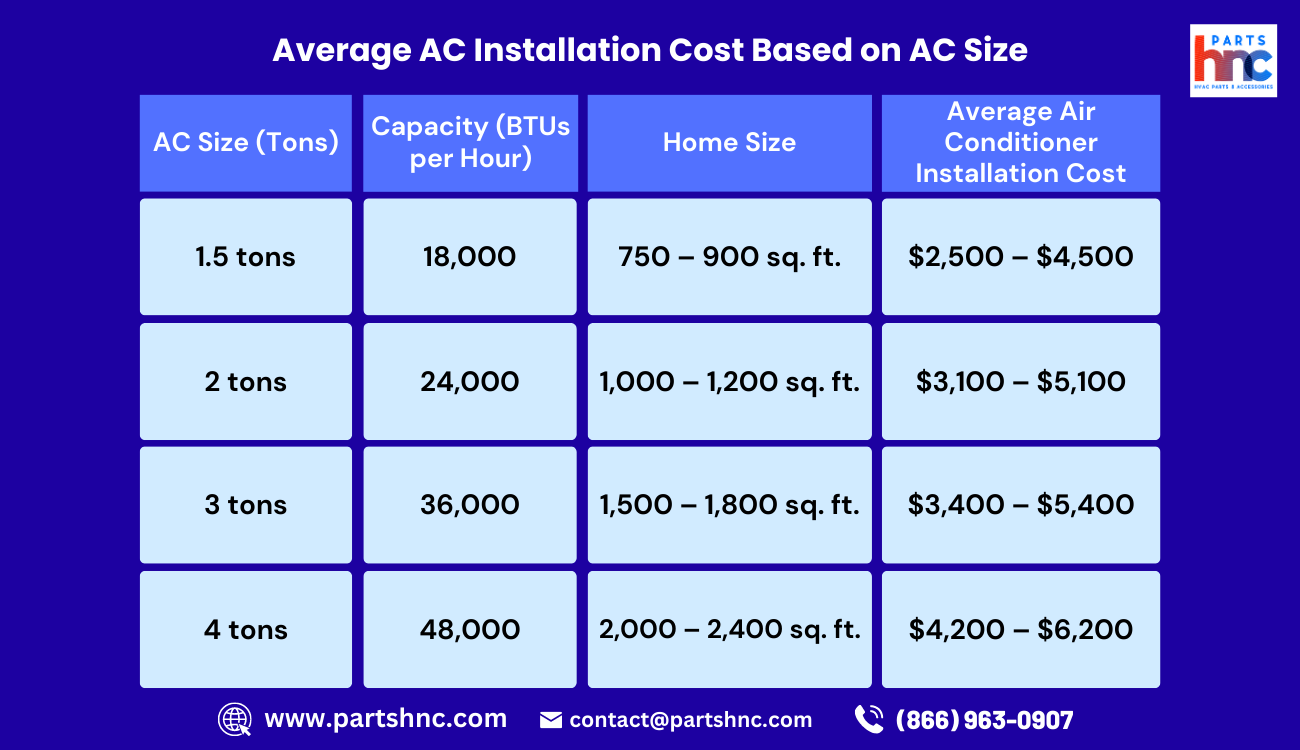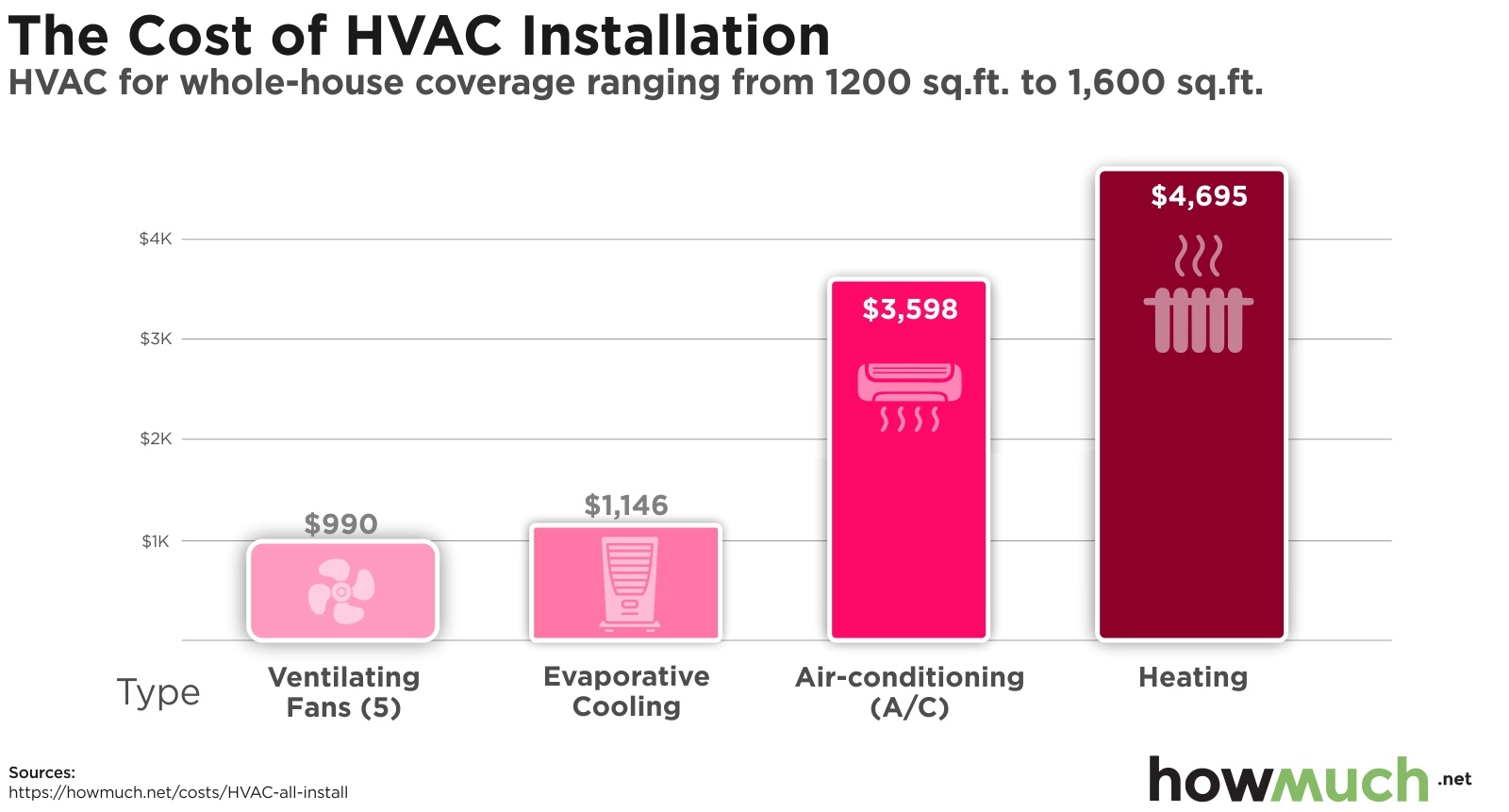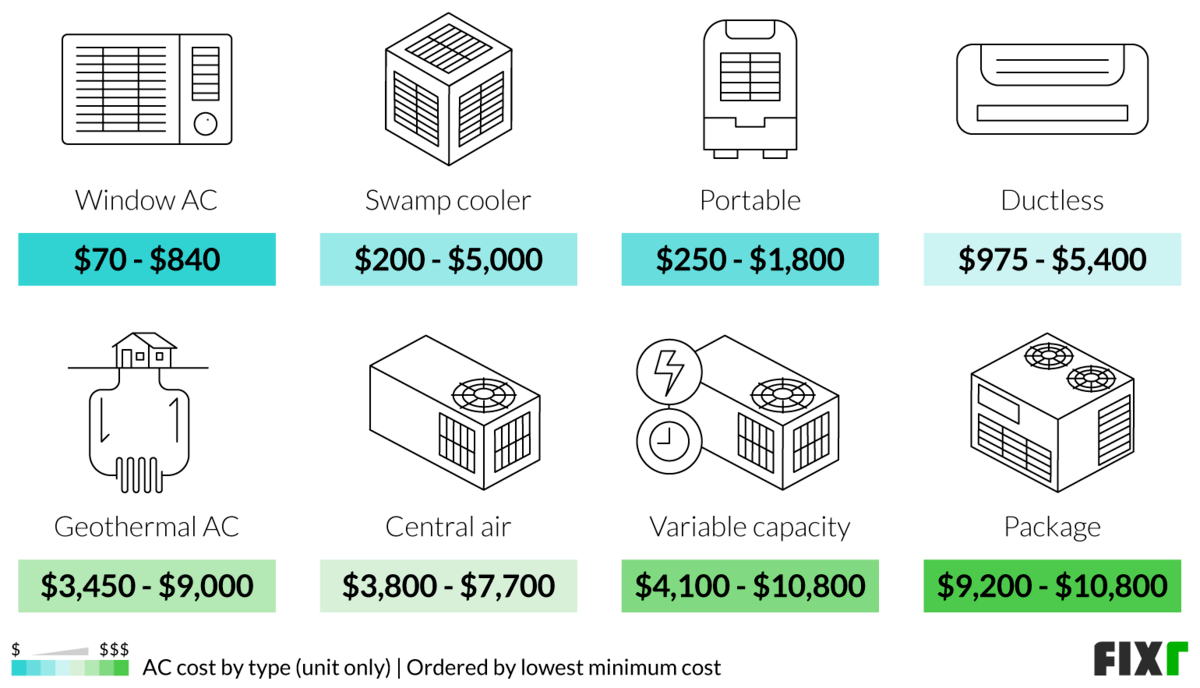Average Cost Of Ac Unit And Installation

Understanding the Costs of a New AC Unit and Installation: A Comprehensive Guide
Replacing or upgrading your air conditioning system is a significant investment, and understanding the costs involved is crucial for making informed decisions. This guide provides a detailed overview of the average cost of an AC unit and its installation, covering factors that influence pricing, popular brands and models, energy efficiency ratings, and essential considerations for a successful installation.
Factors Influencing AC Unit and Installation Costs
Several factors contribute to the overall cost of a new AC unit and its installation. These include:
- AC Unit Size (BTU): The size of the AC unit, measured in British Thermal Units (BTU), directly impacts the price. Larger homes require higher BTU units, resulting in increased costs.
- Type of AC System: Central AC systems, ductless mini-splits, and window units vary significantly in price and installation complexity.
- Energy Efficiency (SEER Rating): Higher Seasonal Energy Efficiency Ratio (SEER) ratings indicate greater energy efficiency but typically come with a higher upfront cost.
- Brand and Model: Reputable brands with advanced features often command a premium price.
- Installation Complexity: Existing ductwork, accessibility, and any necessary modifications to your home can influence labor costs.
- Geographic Location: Labor rates and regional pricing variations can affect the overall cost.
- Permits and Inspections: Local regulations may require permits and inspections, adding to the expense.
Average Cost Breakdown: AC Unit and Installation
The average cost of a new AC unit and installation can range from $3,000 to $7,000 or more, depending on the factors mentioned above. Here's a general breakdown:
- AC Unit (Central AC): $2,000 - $5,000+ (depending on size and SEER rating)
- Installation Labor: $1,000 - $2,000+ (depending on complexity)
- Ductwork Modifications (if needed): $500 - $2,000+
- Permits and Inspections: $100 - $500
Ductless Mini-Split Systems: These systems often cost more upfront, ranging from $3,000 to $8,000 or more per zone (indoor unit), including installation. However, they offer targeted cooling and heating, potentially saving energy in the long run.
Popular AC Brands and Models: Features and Pricing
Several reputable brands offer a range of AC units with varying features and price points. Here's a comparison of some popular options:
Carrier
Carrier is a well-known brand renowned for its innovation and reliability. They offer a wide range of AC units with varying SEER ratings and features. Carrier often sets the standard for new technologies.
- Features: Variable-speed compressors, smart home integration, advanced filtration systems.
- SEER Ratings: Up to 26 SEER
- Price Range: $3,500 - $7,000+ (unit and installation)
Trane
Trane is another leading brand known for its durability and performance. Their AC units are built to withstand harsh conditions and provide reliable cooling.
- Features: Spine Fin™ coil technology, Climatuff® compressors, advanced diagnostics.
- SEER Ratings: Up to 22 SEER
- Price Range: $3,200 - $6,500+ (unit and installation)
Lennox
Lennox offers a range of energy-efficient AC units with innovative features. Their products are designed for quiet operation and optimal comfort. Consider Lennox for high-end systems.
- Features: SilentComfort™ technology, iComfort® smart thermostats, precise temperature control.
- SEER Ratings: Up to 28 SEER
- Price Range: $3,800 - $7,500+ (unit and installation)
Goodman
Goodman provides budget-friendly AC units without sacrificing essential features. They offer a reliable and cost-effective cooling solution.
- Features: High-efficiency compressors, durable construction, easy maintenance.
- SEER Ratings: Up to 18 SEER
- Price Range: $2,500 - $5,000+ (unit and installation)
Understanding SEER, AFUE, and HSPF Ratings
When evaluating AC units and HVAC systems, it's crucial to understand energy efficiency ratings:
- SEER (Seasonal Energy Efficiency Ratio): Measures the cooling efficiency of an AC unit. Higher SEER ratings indicate greater energy savings. A minimum SEER rating of 14 is now required in most regions.
- AFUE (Annual Fuel Utilization Efficiency): Applies to furnaces and measures their heating efficiency.
- HSPF (Heating Seasonal Performance Factor): Applies to heat pumps and measures their heating efficiency.
Choosing a unit with a higher SEER rating can lead to significant energy savings over the lifespan of the system, although the initial investment may be higher. Consider your climate and usage patterns when selecting a SEER rating.
Warranties and Maintenance
Most AC unit manufacturers offer warranties to protect against defects in materials and workmanship. Standard warranties typically cover parts for 5-10 years. Extended warranties may be available for additional coverage, including labor costs.
Regular maintenance is essential for maximizing the lifespan and performance of your AC unit. Recommended maintenance tasks include:
- Annual professional inspection and tune-up.
- Regular filter replacement (every 1-3 months).
- Cleaning coils and fins.
- Checking refrigerant levels.
Neglecting maintenance can lead to decreased efficiency, increased energy bills, and potential breakdowns.
DIY vs. Professional Installation
While it may be tempting to save money by installing an AC unit yourself, professional installation is highly recommended. Proper installation ensures optimal performance, energy efficiency, and safety. Incorrect installation can void warranties and lead to costly repairs.
A qualified HVAC contractor will have the expertise and equipment to:
- Properly size the AC unit for your home.
- Install the unit according to manufacturer specifications.
- Connect the unit to existing ductwork or install new ductwork.
- Charge the refrigerant to the correct level.
- Test the system for proper operation.
Financing Options and Rebates
Replacing an AC unit can be a significant expense, but various financing options and rebates are available to help make it more affordable. Consider exploring:
- HVAC financing programs offered by manufacturers or retailers.
- Home equity loans or lines of credit.
- Government rebates and tax credits for energy-efficient appliances.
- Utility company rebates for upgrading to a high-efficiency AC unit.
Obtaining Multiple Quotes
Before making a final decision, it's crucial to obtain multiple quotes from reputable HVAC contractors. This will allow you to compare pricing, services, and warranties. Be sure to ask for detailed written estimates that include all costs, such as labor, materials, permits, and disposal fees. Read online reviews and check references to ensure you're working with a qualified and reliable contractor.
Long-Term Cost Savings
While the initial cost of a new AC unit and installation may seem high, consider the long-term cost savings associated with energy efficiency. A high-efficiency AC unit can significantly reduce your monthly energy bills, offsetting the initial investment over time. Additionally, a properly maintained AC unit will last longer and require fewer repairs, saving you money in the long run.
Making the Right Choice
Choosing the right AC unit and installation contractor requires careful consideration. By understanding the factors that influence cost, comparing brands and models, and prioritizing energy efficiency and proper installation, you can make an informed decision that will provide years of comfortable and cost-effective cooling.
Remember to factor in not only the initial purchase price but also the long-term operating costs and the value of a reliable and comfortable home environment. Consult with a qualified HVAC professional to determine the best solution for your specific needs and budget. Don't underestimate the value of a good warranty and a reputable contractor. A well-installed and maintained system will provide years of reliable service and comfort. Doing your homework and taking the time to compare options will ensure that you get the best value for your investment.
Investing in a new AC unit is an investment in your comfort and the value of your home. Choose wisely.










